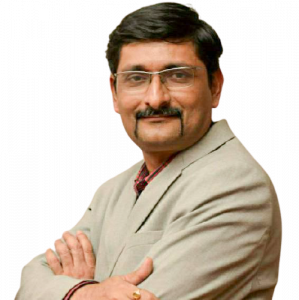AICTE Issues New Guidelines for Online, Open & Distance Learning
By:
EIN Presswire
July 29, 2021 at 02:57 AM EDT
The AICTE has published the Open & Distance Learning and Online Education Guidelines, 2021 paving the way for technical education courses to be offered online
MUMBAI, MAHARASHTRA, INDIA, July 29, 2021 /EINPresswire.com/ -- The All India Council for Technical Education (“AICTE”) has published the AICTE (Open and Distance Learning Education and Online Education) Guidelines, 2021 paving the way for certain technical education courses to be offered online. The Guidelines are significant since they seek to regulate the offering of online and open and distance learning programs in technical education.The UGC had published the revised regulations for offering Online and ODL programs in 2020 under which courses governed by statutory bodies could be offered in Online and ODL mode only after approval of such statutory body. In furtherance of the same, these Guidelines have been published and must be read together with the UGC Online and ODL Regulations.
Online Mode under the Guidelines has been defined to mean “a model of providing flexible learning opportunities by overcoming the separation of teacher and learner using the internet, e-Learning Materials, and full-fledged program delivery through the internet using technology-assisted mechanism and resources”. Consequently, the AICTE, which had earlier been averse to the offering of technical education programs online, has now enabled the offering of inter alia full-fledged courses, albeit in limited programs, through online mode.
On the other hand, “Open and Distance Learning (ODL)” mode has been defined to mean "a model of providing flexible learning opportunities by overcoming the separation of teacher and learner using a variety of media, including print, electronic, MOOC, online and occasional interactive face-to-face meetings arranged by Institution through Learner Support Services to deliver teaching-learning experience, including practical or work experience”
Courses: The Guidelines are only applicable to management and allied areas, computer applications, artificial intelligence, and data science in the engineering & technology domain, logistics, and travel and tourism. Technical education programs other than these have been expressly prohibited for Online and ODL mode. In case an HEI proposes to start a new course, the nomenclature of which is not present in the AICTE Approval Process Handbook (“AICTE Handbook”), prior concurrence by the AICTE is required.
In an Interview with Media Dr. Prakash Bhosale, said “The National Education Policy 2020 had envisaged a light but tight form of regulation for higher education in India, and the Guidelines are in tandem with this vision. The Guidelines contain numerous enabling provisions, such as the ability of high-ranking institutions to commence online programs without prior approval of the AICTE. The regime is not process-heavy either and prescribes that certain eligibility criteria are fulfilled and relevant norms be complied with. In light of this, clarity in regulation is better than no regulations, since the latter leaves considerable scope for arbitrary action from the regulators. Given that they provide more structure to the regulation of the online education sector, and provide more clarity to HEIs regarding their compliance requirements, the Guidelines are a welcome push to the already thriving online education sector.” Dr. Prakash Bhosale is a Ph.D. in journalism and writes and helps hundreds of distance learning students.
Dr. Prakash Bhosale
BBG EBRANDING MEDIA
+91 8097027355
profprakash@mbaprojectreports.com
More News
View More
Up Over 20% in 2025, These 3 Stocks Are Boosting Buyback Capacity ↗
December 01, 2025
Via MarketBeat

Congress Beat the Market Again—Here Are the 3 Stocks They Bought ↗
December 01, 2025
Via MarketBeat

Go on a Shopping Spree With 3 Top Retail ETFs ↗
December 01, 2025

3 Fresh Dividend Hikes That Might Be Telling You Something ↗
December 01, 2025

Recent Quotes
View More
Stock Quote API & Stock News API supplied by www.cloudquote.io
Quotes delayed at least 20 minutes.
By accessing this page, you agree to the Privacy Policy and Terms Of Service.
Quotes delayed at least 20 minutes.
By accessing this page, you agree to the Privacy Policy and Terms Of Service.
© 2025 FinancialContent. All rights reserved.
>
